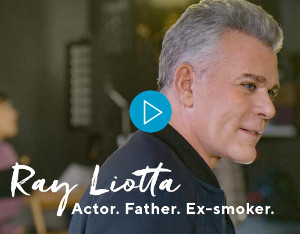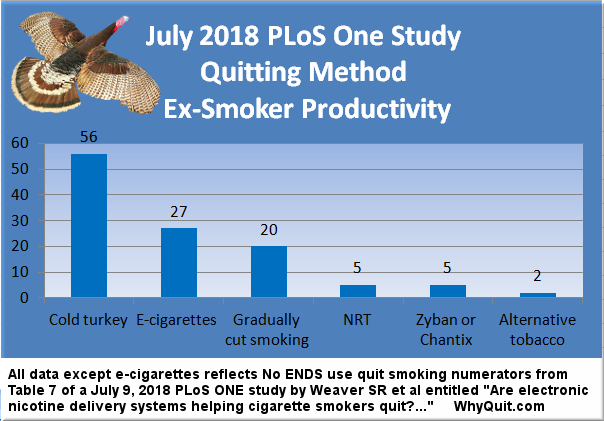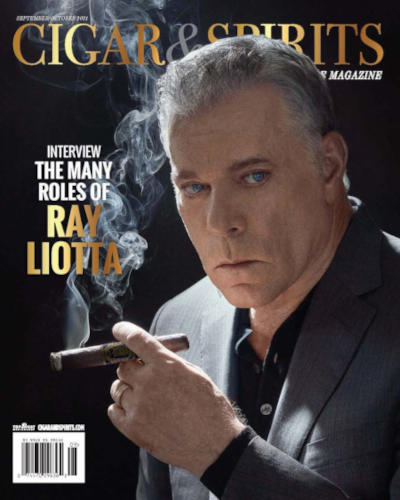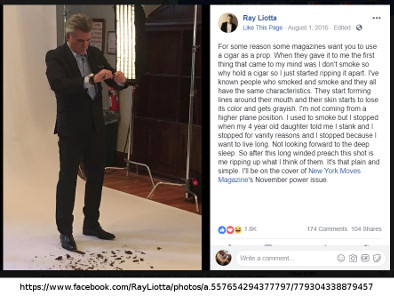
Did Ray Liotta really quit smoking with Chantix?
Facts shared in 2016 social media posts conflict with actor's 2018 Chantix claims
 Goodfellas star Ray Liotta is featured in a number of Chantix commercials. Pfizer's poster boy for its controversial stop smoking pill, Ray's image currently appears atop the Chantix.com homepage and the site is featuring his video quitting story.
Goodfellas star Ray Liotta is featured in a number of Chantix commercials. Pfizer's poster boy for its controversial stop smoking pill, Ray's image currently appears atop the Chantix.com homepage and the site is featuring his video quitting story.
The burning question? Is Pfizer’s ad campaign honest and true? Did Ray Liotta actually quit smoking by using Chantix, or are we witnessing the performance of Ray’s life?
Ray’s many Chantix commercial claims include the following:
- "I'm Ray and I quit smoking with Chantix"
- "I tried cold turkey"
- "I wasn’t tough enough to quit on my own, not until I tried Chantix"
- "I wanted to stop. The thing is, I didn't know how."
- "I tried to quit smoking for years on my own. I couldn’t do it. I needed help."
Prior to becoming Team Pfizer's 2018 star, what was Ray Liotta saying about having quit smoking?
Nearly identical August 1, 2016 Instagram and Facebook posts by "rayliotta" include a photo of Ray ripping up a cigar. The accompanying posts state that, "I used to smoke but I stopped when my four year old daughter told me I stank."
If Ray's social media posts are true, we have a rather glaring math problem. Ray's daughter Karsen was born in 1998. She turned four in 2002. How could Ray have purchased Chantix in 2002 when the Food and Drug Administration didn’t approve Chantix for sale until four years later in 2006?
Why care?
Half of adult smokers smoking themselves to death, no one gets hurt or dies if a celebrity makes millions off of a personal use endorsement for a sneaker, make-up, or car. But for smokers, priceless periods of cessation confidence are finite before the cumulative effects of years of inhaling hundreds of tobacco toxins pass the point of no return.
We should care because Ray Liotta is using his "tough guy" image to help Pfizer send smokers the demoralizing message that it may be almost impossible for them to quit without purchase and use of its extremely expensive and risk laden pill.
Truth is, nothing could be further from the truth. Let's start with the fact that there are more ex-smokers in the U.S. than smokers. Quitting isn't just possible, success is likely. Combine that with the fact that a 2013 Gallup Poll found that only 1 in 50 ex-smokers credited any prescription medication for their success.
Truth is, as evidenced by nearly all population level quitting method surveys, each and every year, more smokers successfully arrest their chemical dependence via abrupt nicotine cessation than by all other quitting methods combined.
Both, becoming 100% nicotine-clean and moving beyond peak withdrawal in less than 72 hours, cold turkey is fast, free, safe, effective and extremely productive.

How do real-world cold turkey success rates compare to Chantix? A 2018 study found cold turkey was twice as effective when compared to pooled medication quitters (Chantix and Zyban).
Why care? Because as shared beneath Ray's picture at the bottom of Pfizer’s Chantix homepage: “Some people have had new or worse mental health problems, such as changes in behavior or thinking, aggression, hostility, agitation, depressed mood, or suicidal thoughts or actions while taking or after stopping CHANTIX.”
Could Chantix be the best or only answer for some subset of smokers? Possibly. But why spend $1,455 for a three month's supply of a pill carrying these risks before taking time to better understand and trust in your natural quitting instincts?
But how?
Urge or no urge, crave or no crave, can you go the next 5 minutes without introducing nicotine into your bloodstream? Absolutely. In that cue triggered crave episodes are over within five minutes, just one challenge at a time, you already possess the basic recovery skill needed to succeed.
Key is coming to terms with the reality that nicotine dependency recovery is all or nothing, that lapse equals relapse, that one will always be too many, while thousands won't be enough.
As discovered in brain scan studies, just one puff and up to 50 percent of dopamine pathway receptors become occupied by nicotine.
While most attempting to cheat when quitting walk away feeling like they’ve gotten away with it, nicotine addiction is real drug addiction, as permanent as alcoholism. And it isn’t long before the cheater finds their brain wanting, plotting to obtain, or even begging for more.
Truth is, it's impossible to relapse so long as all nicotine remains on the outside. Once serious about coming home, no force on earth will be able to stop you. Truth is, the only way to remain nicotine’s slave is obedience to that next urge for more.
Baby steps, no nicotine just one challenge at a time, yes you can!
I, John R. Polito, am fully and solely responsible for the content of this article. Any factual error will be promptly corrected upon notice emailed to john@whyquit.com

05/28/22 Epilogue
Actor Ray Liotta reportedly died in his sleep at age 67 on Thursday, May 26, 2022. As of May 28 his cause of death had not been reported. Although most will remember Ray as Henry Hill in Goodfellas or Shoeless Joe in Field of Dreams, among those battling teen smoking, his legacy includes movies that will continue to glorify smoking decades after his passing.
Why does it matter? It took 28 months for COVID-19 to generate 1 million COVID-related deaths. Still America’s leading cause of preventable death, it took smoking just 25 months. And smoking's leading killer isn't lung cancer or emphysema. It's circulatory disease, primarily heart attacks and strokes.
So, how do we square the Ray Liotta selling cigars on the September 2021 cover of Cigar & Spirits magazine with the Ray marketing the controversial quitting pill Chantix in 2018? A love of smoking, a lack of principles, a need for money, relapse?
According to the CDC, in 2021 cigars were the third most commonly used tobacco product among U.S. middle and high school students with 2.1% in grades 9-12 currently smoking cigars.
"Historically, cigar smoking in the United States has been a behavior of older men," notes the CDC, "but the industry’s increased marketing of these products to targeted groups increased the prevalence of use among adolescents."
The CDC notes that celebrity cigar endorsements as symbols of luxurious and successful lifestyles, cigar-smoking in movies, and publication of cigar-focused magazines have likely contributed to youth cigar use.
Like it or not, Ray Liotta "appears" to have been actively engaged in each.
Was Ray Liotta a smoker? Was his death smoking-related? If so, it's a fact that has the potential to help motivate adoring smoking fans to attempt quitting and teens to never start. Sadly, when it comes to Hollywood, unvarnished truth often gets sacrificed.



